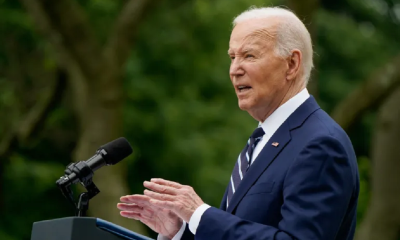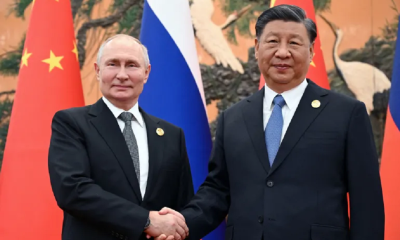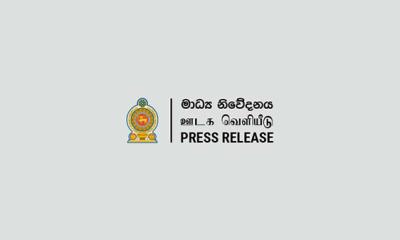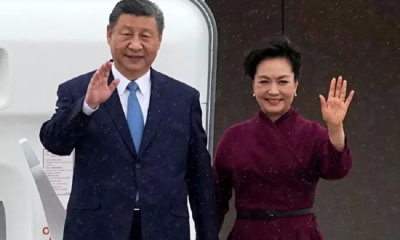News
Pathfinder Foundation to develop a blueprint to double Sri Lanka’s growth rate

The Pathfinder Foundation has formed a Study Group of Experts to develop a blueprint and framework aimed at doubling Sri Lanka’s economic growth rate through accelerated economic integration and infrastructural connectivity with India. The framework document is expected to be formally launched in March 2024. Most economic forecasts place Sri Lanka on an average growth trajectory of 3% per annum for the next decade.
Such an anaemic growth rate will not help resolve Sri Lanka’s daunting social and economic challenges by any stretch of the imagination. Sri Lanka needs to think big and shift paradigms if the country is to find a way out of a seemingly hopeless predicament. As growth in the rest of the world including China continues to slowdown, India is expected to grow at above 6% per annum and will remain one of the best-performing economies in the world for the foreseeable future.While foreign investment into many regions is falling, investors are flocking to India due to its large market and emerging middle class.
Through an accelerated economic integration and physical connectivity strategy with India, Sri Lanka could take advantage of this momentum and easily double its economic growth to 6% per annum. India is already the largest source market for Sri Lankan tourism.
For example, at the end of the Second World War, the Netherlands seized the opportunity to develop its air, sea, rail, road, and energy sectors to become Europe’s distribution centre. Today, Rotterdam is the largest port in Europe, and Amsterdam is a principal global aviation hub. In fact, Singapore, too, used the Netherlands as a model for its own planning during its early stages of development. As windows of opportunity open and close quickly, it is essential for Sri Lanka to rapidly move towards becoming the principal gateway to South Asia, the Middle East, the Far East, and beyond before circumstances evolve and Sri Lanka is left behind.
Sri Lanka’s modern historical landscape has been littered with many missed opportunities. During the 1970s, in the heyday of US and European global expansion, Sri Lanka chose to nationalise Western multinationals operating in the country and as a result lost out on potential foreign investment opportunities to East Asia. Subsequently, President J.R. Jayewardene opened the economy and worked with the West and Japan to attract funding and investment for large-scale projects such as the Accelerated Mahaweli programme, port development, export-processing zones, and other infrastructure projects.
Unfortunately, Sri Lanka’s inability to grasp and manage the realpolitik of the Cold War period especially in terms of the Indian relationship, ultimately contributed to an intractable war that lasted nearly thirty years. In the 1980s when Japanese investors started to look abroad to relocate their industries for competitiveness, Sri Lanka was very high on the shortlist.
However, despite the excellent bilateral relationship between the two countries, due to persistent civil unrest during that period, in Sri Lanka, Japanese industries chose to relocate to Malaysia, Thailand, and other East Asian countries instead. In many ways, Sri Lanka also missed the opportunities presented during the early stages of China’s economic rise. Today, China is an important investment partner for Sri Lanka, although geopolitical realities will frame how this relationship can be managed.
India’s dramatic transformation into a fast-growing global economic powerhouse presents Sri Lanka with yet another chance to get the country onto a fast-economic growth trajectory that will integrate it with the global economy on a competitive footing. The Pathfinder Foundation Study Group blueprint and framework will conceptually present the key requirements for infrastructure connectivity between Sri Lanka and India including land, rail, ports/shipping, airports/airlines, electricity, energy/oil, telecommunications, and digital infrastructure. It will also identify other requirements that would facilitate speedy economic integration.
The Study Group will delineate an accelerated programme to achieve physical connectivity between India and Sri Lanka, while ensuring that Sri Lanka’s national security, territorial integrity, sovereignty, and unique cultural identity are safeguarded. It will also advocate an ambitious programme like the Accelerated Mahaweli programme that will seek to mobilise funding on a global level from bilateral, multilateral and international private-sector sources.
There is no doubt that this is a very auspicious time for such an initiative and international support and resources will be available, Sri Lanka must have the political will to seize this rare advantage that would put Sri Lanka on track. Besides the obvious medium and long-term advantages this program will have, there will also be many short-term spin-off benefits to the local economy as well. These will help create employment and opportunities in sectors such as construction.
Once this blueprint is complete, Pathfinder will present it for discussion in Sri Lanka and internationally. Earlier this year, the Pathfinder Foundation launched a report entitled ‘Medium and Long-term Strategy for Indo-Japanese Collaboration to Support the Economic Transformation of Sri Lanka’, which was launched in both Colombo and New Delhi.
News
US sports envoys to Lanka to champion youth development

The U.S. Embassy in Colombo welcomed the U.S. Sports Envoys to Sri Lanka, former National Basketball Association (NBA) and Women’s National Basketball Association (WNBA) players Stephen Howard and Astou Ndiaye, from June 8 through 14.
The Public Diplomacy section of the U.S. Embassy said that it would launch a weeklong basketball program intended to harness the unifying power of sports, made possible through collaboration with Foundation of Goodness and IImpact Hoop Lab.
While in Sri Lanka, Howard and Ndiaye, both retired professional basketball players, will conduct a weeklong program, Hoops for Hope: Bridging Borders through Basketball. The Sports Envoys will lead basketball clinics and exhibition matches and engage in leadership sessions in Colombo and Southern Province for youth aged 14-18 from Northern, Uva, Eastern and Western Provinces, offering skills and leadership training both on and off the court. The U.S. Envoys will also share their expertise with the Sri Lanka Basketball Federation, national coaches, and players, furthering the development of basketball in the country. Beyond the clinics, they will collaborate with Sri Lankan schoolchildren to take part in a community service project in the Colombo area.
“We are so proud to welcome Stephen and Astou as our Sports Envoys to Sri Lanka, to build on the strong people-to-people connections between the United States and Sri Lanka,” said U.S. Ambassador Julie Chung. “The lessons that will be shared by our Sports Envoys – communication, teamwork, resilience, inclusion, and conflict resolution – are essential for leadership development, community building, equality, and peace. The U.S. Sports Envoy program is a testament to our belief that sports can be a powerful tool in promoting peace and unity.”
News
Rahuman questions sudden cancellation of leave of CEB employees

SJB Colombo District MP Mujibur Rahuman in parliament demanded to know from the government the reasons for CEB suspending the leave of all its employees until further notice from Thursday.
MP Rahuman said that the CEB has got an acting General Manager anew and the latter yesterday morning issued a circular suspending leave of all CEB employees with immediate effect until further notice.
“We demand that Minister Kanchana Wijesekera should explain this to the House. This circular was issued while this debate on the new Electricity Amendment Bill was pending. There are many who oppose this Bill. The Minister must tell parliament the reason for the urge to cancel the leave of CEB employees,” the MP said.However, Speaker Mahinda Yapa Abeywardena prevented Minister Wijesekera responding to the query and said that the matter raised by MP Rahuman was not relevant.
News
CIPM successfully concludes 8th Annual Symposium

The Chartered Institute of Personnel Management (CIPM) successfully concluded the 8th Annual CIPM Symposium, which took place on 31st May 2024. Themed “Nurturing the Human Element—Redefining HRM in a Rapidly Changing World,” the symposium underscored the pivotal role of human resource management (HRM) in today’s dynamic global landscape. Since its inception in 1959, CIPM has been dedicated to advancing the HR profession through education, professional development, and advocacy, solidifying its position as Sri Lanka’s leading professional body for HRM.
Ken Vijayakumar, the President of the CIPM, graced the occasion as the chief guest. The symposium commenced with the welcome address by the Chairperson, Prof. Arosha Adikaram, followed by the Web Launch of the Symposium Proceedings and Abstract Book by the CIPM President. The event featured distinguished addresses, including a speech by Chief Guest Ken Vijayakumar, President of CIPM, and an address by Guest of Honor Shakthi Ranatunga, Chief Operating Officer of MAS Holdings Pvt. Ltd., Sri Lanka.
The symposium also featured an inspiring keynote address by Prof. Mario Fernando, Professor of Management and Director of the Centre for Cross Cultural Management (CCCM) at the University of Wollongong, Australia.
Vote of Thanks of the inauguration session was delivered by Dr. Dillanjani Weeratunga, Symposium Co-chair.
The symposium served as a comprehensive platform for researchers to present their findings across a wide range of critical topics in HRM. These included Cultural Diversity and Inclusion, Talent Development and Retention, Ethical Leadership and Corporate Social Responsibility, Adapting to Technological Advancements, Mental Health and Well-being at Work, Global Workforce Challenges, Employee Empowerment, and Reskilling and Upskilling.
The plenary session was led by Prof. Wasantha Rajapakse. Certificates were awarded to the best paper presenters during the valedictory session, followed by a vote of thanks delivered by Kamani Perera, Manager of Research and Development.
The annual symposium of CIPM was a truly inclusive event, attracting a diverse audience that spanned undergraduates, graduates, working professionals, research scholars and lecturers. This widespread interest highlights the symposium’s significance in the field of HRM, offering a unique opportunity for everyone to network and learn from scholarly brains.The CIPM International Research Symposium was sponsored by Hambantota International Port, Sri Lanka Institute of Information Technology (SLIIT), E B Creasy & Co. PLC, and Print Xcel Company.
























